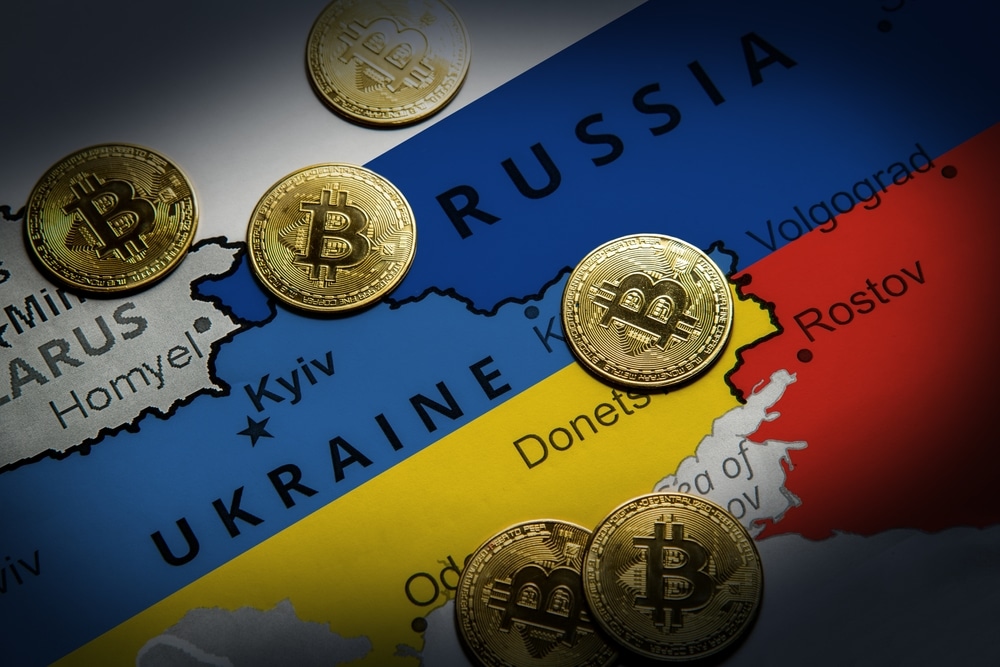In a recent development, leading cryptocurrency exchanges in Ukraine have announced the temporary suspension of transactions using hryvnia bank cards.
This decision comes as a result of restrictions imposed by the country’s central bank, which has prompted major players like Binance and Kuna to make the move.
According to statements released to the crypto media, Binance and Kuna cited the central bank’s restrictions as the reason for their decision.
The move is likely to cause inconvenience for Ukrainian traders who use hryvnia cards to buy and sell crypto, but it’s important to note that the suspension is only temporary.
(Advertisement)
CypherMind-HQ.com Artificial Intelligence Crypto Trading System – Get Ahead of the Curve with this sophisticated AI system! Harness the power of advanced algorithms and level up your crypto trading game with CypherMindHQ. Learn more today!
Why Did This Happen?
The situation highlights the ongoing debate surrounding the regulation of cryptocurrencies and their status as a legitimate form of currency.
While some countries have embraced them as a means of exchange and investment, others have taken a more cautious approach, imposing restrictions to protect their financial systems.
As the crypto market continues to evolve, it’s likely that we’ll see more regulatory measures being introduced by governments around the world. In the meantime, Ukrainian traders will need to find alternative methods to carry out their transactions.
The decision to limit the processing of deposits and withdrawals in the national currency is a result of restrictions imposed by the National Bank of Ukraine. Binance has advised traders to use its peer-to-peer marketplace instead.
Could More Regulatory Measures be on the Horizon?
As the crypto market continues to grow and evolve, we can expect to see more regulatory measures being introduced by governments and central banks around the world.
Until the situation is resolved, Ukrainian traders will need to find alternative methods to carry out their transactions.
Nevertheless, the suspension of operations with bank cards in Ukrainian hryvnia on Binance and Kuna is a temporary setback for the country’s burgeoning crypto industry.
According to the founder of Kuna, a leading Ukrainian crypto exchange, the current situation with hryvnia card transactions is critical.
He also suggested on Friday that the issues faced with any kind of non-cash hryvnia transactions may be linked to the Ukrainian authorities’ crackdown on tax evasion along with money laundering from online gambling sites.
He referred to a statement by a Ukrainian lawmaker who estimated that this kind of turnover amounts to 54 billion hryvnia. For those who don’t know, this is equivalent to almost $1.5 billion annually. Zhmerenetsky has since confirmed that he sees a link between the two.
When did the Problems Start
According to Michael Chobanian, the problems faced with withdrawing and depositing hryvnia on Ukraine based crypto exchanges began in September of last year.
Since December ended, the restrictions brought forward by the National Bank of Ukraine have become even tougher. For financial companies, the NBU essentially banned A2C and P2P transactions, which has had a significant impact on the crypto industry.
Chobanian argues that the restrictions are bringing reputational damage to Ukraine, a country that has been a leader in crypto adoption in the region and beyond.
He believes that the situation will also affect the activities of small and medium-sized companies, as well as cryptocurrency donations.
Recent reports suggest that since the start of the Russian invasion in late February 2022, Ukraine has raised over $212 million in crypto for defense and humanitarian efforts. $70 million of that amount was received from government-provided addresses.
At the end of April, the NBU imposed a monthly limit on transactions for the purchase of cryptocurrencies, set at 100,000 hryvnia per person. However, the monetary authority is yet to comment on the consequences of its restrictions for the country’s crypto market.
Final Thoughts
These developments highlight the ongoing struggle between regulators and the crypto industry, as countries around the world grapple with the impact of digital assets on their financial systems.
As the market continues to grow, it’s likely that we’ll see more measures being introduced to protect against illicit activities.
Nevertheless, it’s important to strike a balance between regulation and innovation to ensure that the crypto industry can continue to thrive while safeguarding the integrity of financial systems.



